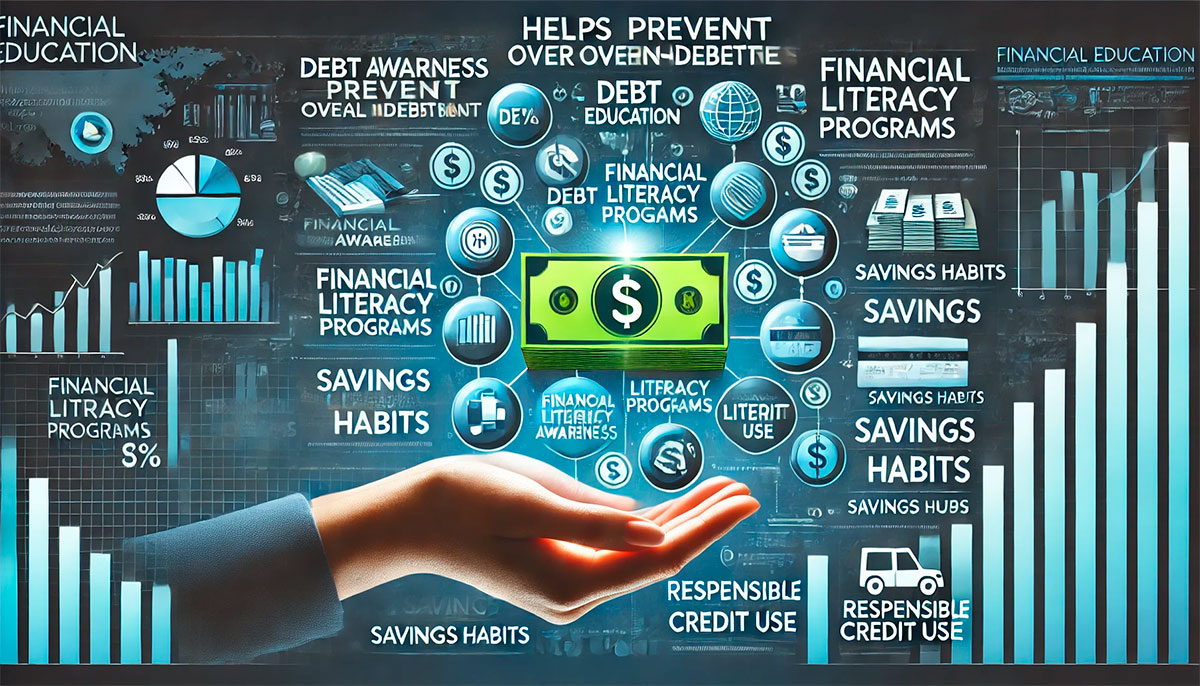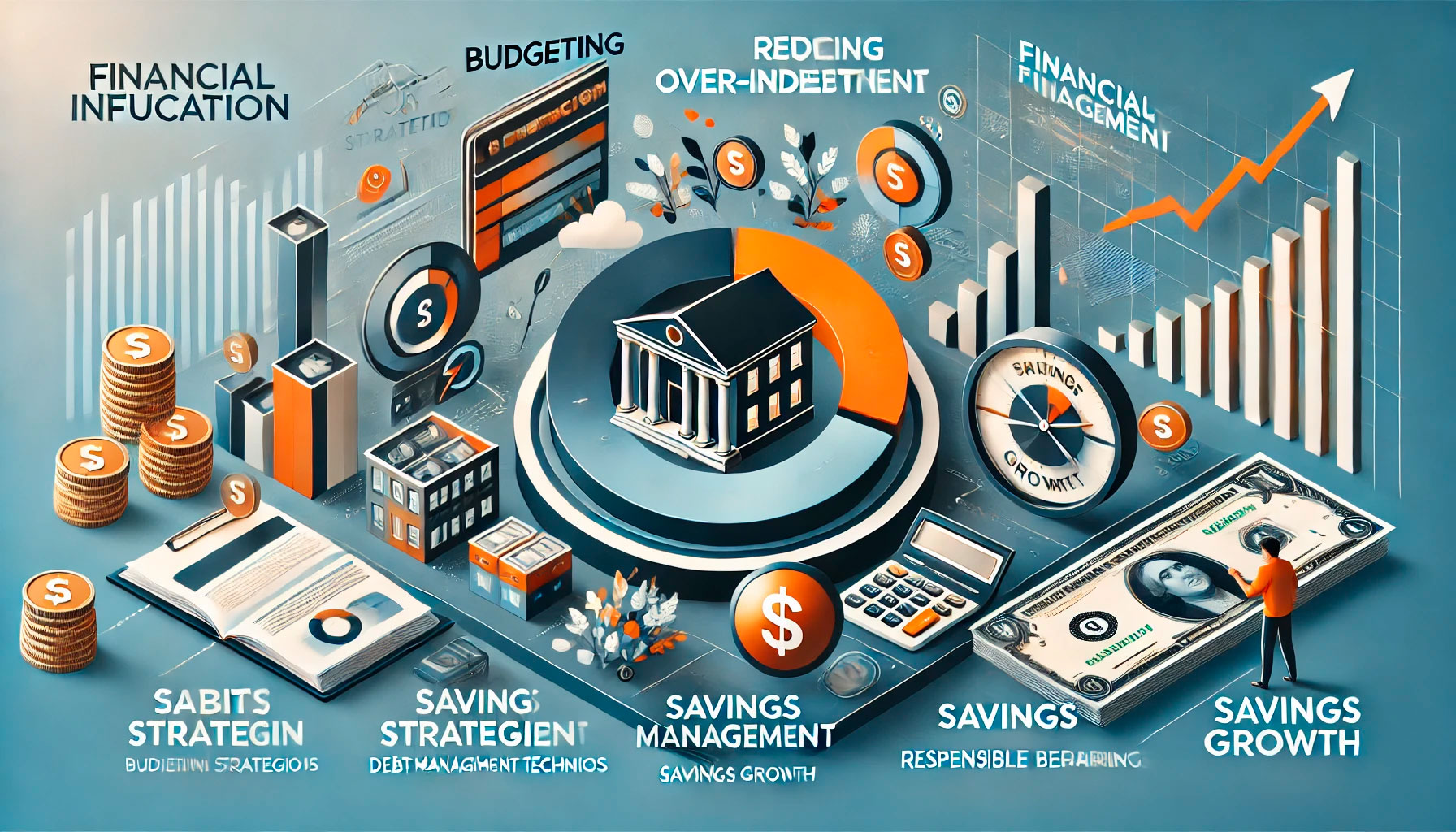Over-indebtedness has become an increasingly prevalent issue across the globe, affecting millions of individuals, families, and even entire economies. As access to credit becomes more widespread, consumers are often faced with the challenge of managing multiple loans and financial commitments, which, if mismanaged, can lead to a cycle of debt that is difficult to escape. Financial education plays a pivotal role in reducing the risk of over-indebtedness by equipping individuals with the knowledge and skills needed to make informed financial decisions. This article explores the importance of financial education in preventing over-indebtedness and how it can empower individuals to take control of their financial futures.
Understanding Over-Indebtedness
Over-indebtedness occurs when an individual or household’s debt obligations exceed their ability to repay. It is often characterized by an overwhelming financial burden where monthly repayments consume a significant portion of one’s income, leaving little room for savings, emergencies, or daily expenses. In extreme cases, over-indebtedness can lead to default, financial distress, and even bankruptcy.
The rise of consumer credit, including credit cards, payday loans, and personal loans, has contributed significantly to the increase in over-indebtedness. While access to credit can help individuals manage cash flow in times of need, it also creates a temptation to borrow beyond one’s means. In the absence of sound financial education, individuals may find themselves borrowing more than they can afford to repay, exacerbating their debt burden.
The Importance of Financial Education
Financial education is the foundation for making informed, responsible decisions about money management. It involves teaching individuals how to effectively manage their finances, including budgeting, saving, investing, and understanding credit. By fostering financial literacy, individuals are better equipped to navigate the complexities of financial products and services, ensuring they make decisions that align with their long-term financial well-being.
One of the key benefits of financial education is that it empowers individuals to live within their means. With a solid understanding of budgeting and financial planning, individuals can avoid falling into the trap of overspending or relying on credit to cover daily expenses. Financial education also helps individuals recognize the long-term consequences of borrowing and the importance of maintaining a healthy balance between debt and income.
How Financial Education Prevents Over-Indebtedness
Financial education plays a critical role in preventing over-indebtedness in several ways:
- Budgeting Skills: Learning how to create and stick to a budget is one of the most important aspects of financial education. A budget helps individuals track their income and expenses, ensuring they live within their means. With a clear understanding of their financial situation, individuals are less likely to overspend or take on excessive debt.
- Understanding Credit: Financial education helps individuals understand how credit works, including the interest rates, fees, and terms associated with loans. This knowledge enables consumers to make informed decisions about borrowing and avoid getting trapped by high-interest loans or credit products that may lead to a debt spiral.
- Building Savings Habits: Financial education encourages the importance of saving for both short-term and long-term goals. By prioritizing savings and building an emergency fund, individuals are less likely to rely on credit in times of financial stress, reducing the likelihood of over-indebtedness.
- Debt Management Strategies: With financial education, individuals learn how to manage existing debt effectively. They can develop strategies for paying down high-interest debt first, consolidating loans, or negotiating with creditors for better terms. This helps prevent the accumulation of debt and makes it easier to stay on top of repayments.
- Recognizing Warning Signs: Financial education teaches individuals to recognize the warning signs of over-indebtedness, such as missed payments, increasing debt balances, and reliance on credit to cover daily expenses. By being proactive and seeking help early, individuals can avoid falling deeper into debt.

The Role of Financial Education in Vulnerable Populations
While financial education is beneficial for everyone, it is particularly important for vulnerable populations who may be at a higher risk of over-indebtedness. These groups include low-income individuals, young people, the elderly, and those with limited access to formal banking services.
Low-income individuals often face the challenge of balancing tight budgets, which can lead them to rely on high-interest loans or credit to meet essential needs. Financial education helps these individuals understand how to manage their limited resources more effectively, prioritize needs over wants, and avoid predatory lending practices.
Young people, especially those entering adulthood and managing their finances for the first time, are often unaware of the long-term implications of borrowing and credit. Teaching financial literacy at an early age can help prevent young adults from making poor financial decisions, such as taking on excessive student loans or credit card debt. Early education can equip them with the tools they need to make responsible financial choices throughout their lives.
The elderly population is also at risk of over-indebtedness due to fixed incomes and rising healthcare costs. Financial education tailored to older adults can help them navigate retirement planning, manage healthcare expenses, and understand how to manage any existing debts effectively, ensuring they do not become financially burdened in their later years.
Government and Institutional Support for Financial Education
To reduce over-indebtedness on a larger scale, governments and financial institutions play an important role in promoting financial education. In many countries, government agencies and nonprofit organizations offer financial literacy programs that target vulnerable populations and teach essential money management skills. These programs may include workshops, online courses, and one-on-one counseling, all designed to improve financial literacy and help individuals make better financial decisions.
Financial institutions can also contribute to reducing over-indebtedness by offering financial education resources to their customers. Banks, credit unions, and other lenders can provide tools to help consumers understand the terms and conditions of loans, as well as tips on managing debt. Additionally, many financial institutions have begun offering budgeting tools and debt management resources to assist consumers in making smarter financial choices.
Conclusion: Empowering Individuals to Avoid Over-Indebtedness
In conclusion, financial education plays a vital role in reducing over-indebtedness by equipping individuals with the knowledge and tools necessary to make informed financial decisions. By fostering skills in budgeting, understanding credit, managing debt, and building savings, financial education empowers individuals to live within their means and avoid falling into the trap of excessive debt. Governments, financial institutions, and nonprofit organizations all have a part to play in promoting financial literacy and ensuring that individuals, especially those in vulnerable groups, have access to the resources they need to make sound financial decisions. With proper education, individuals can take control of their financial futures, reduce their risk of over-indebtedness, and achieve long-term financial stability.

